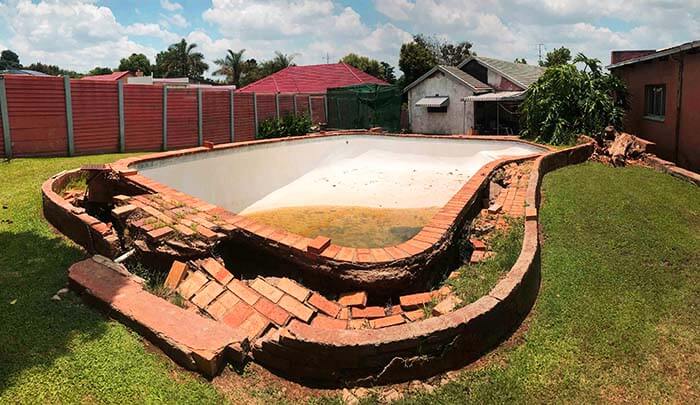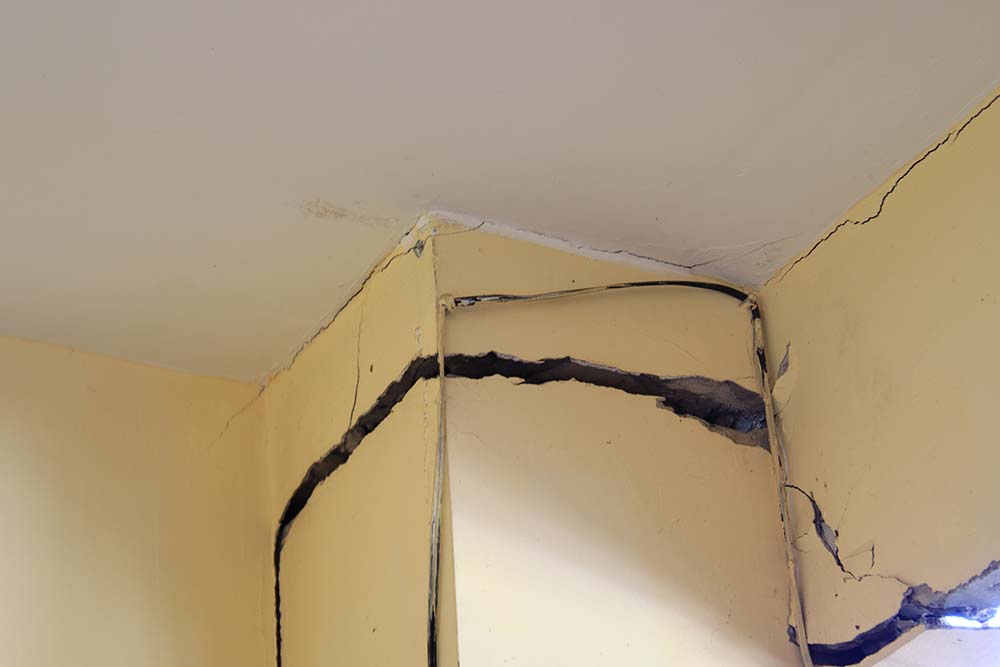Is your property experiencing foundation damage? You’re not alone. Foundation problems are the most common structural defect in residential homes. If you don’t know what you’re doing, tackling a problem like foundation damage can be a nightmare.
What is a property foundation issue and how does it happen?
A property foundation issue is when there is damage to the foundation of the property, usually due to poor construction or neglect.
If you’re dealing with major foundation issues, be sure to seek professional help before you start trying DIY fixes. Believe me—I feel your pain. Foundation problems are one of the worst things home-owners face, but can happen to investors too. This damage manifests in a number of ways, from foundation cracks to a damaged concrete slab to leaks in the basement walls.
What are the major causes of foundation issues?
The major causes of foundation issues are:
1) Low-quality, or improperly installed drainage systems- water can’t drain out of the soil and pools up, which increases the risk of flooding and structural damage. If this is a problem, your home’s foundation is most likely suffering from it.
2) Foundation settlement- when the soil composition changes, such as when groundwater levels drop or there’s a big storm. This can cause cracks in your foundation.
3) Soil erosion and degradation- if you home is on a hill and the ground around it erodes away, it will eventually start eroding away underneath your house too. Your house will start to sink into this hole until the ground deteriorates so much that your house falls down.

Signs of foundation issues
While you should always hire a structural engineer to evaluate any and all properties with a suspected foundation, there are a few easy clues visible to the naked, uneducated eye.
- Plumbing: Plumbing problems do not always indicate a foundation problem, but they do indicate that further investigation is necessary. Over time, dripping water can damage the concrete.
- Poor drainage: Ground sloping toward the house—also called negative drainage—can cause water pooling. Differential movement can be caused if one part of the property is located on loose, wet soil and the other part is on a clay soil. That’s when parts of the foundation shift in opposite directions, leading to cracks.
- Trees: If there are trees too close to the property, keep an eye out for them. Tree roots can push against the foundation or dry out the soil, causing your foundation to shift.
- Hairline cracks: These cracks can be found in the mortar between bricks or concrete blocks, but they can also be a sign of foundation issues. Sometimes these are caused by seasonal expansion around window frames and doorways, so make sure a structural engineer inspects the scene.
Making an informed decision
Knowing when you should deal with big distress like a foundation repair requires the help of a structural engineer. So, your first step is to hire one.
Even if you’re not technically involved, it’s important to hire someone who is. An engineer will inspect the home and make sure there are no hidden structural issues. After they’ve had a look, they’ll present you with some options and help you decide what to do next.
For example, the engineer may tell you that corrective action is minimal. A foundation repair company might try to sell you on unnecessary services. I was offered a R50,000 discount on an offer because one of the companies I approached told the owner it needed huge repairs. It turned out it had a down spout problem and needed some grading work.
Ask your engineer if this is issue can be resolved with a simple repair. Or should you expect to deal with future issues? Some water table issues can be mitigated with a simple fix. But perhaps you’re dealing with ongoing shifting soils beyond your control. Ask your engineer, “What’s the fix?”

Finding a foundation crew
Speak with a number of different foundation crews. Ask them to visit the property and assess the reported damage. Once they provide an estimate for the cost to repair, you can decide whether or not to go ahead with the project.
Make sure you and your crew are clear on your timeline to fix the issue, especially if you’re planning a sell. The foundation must be corrected first before any other work is done in the house. (If a contractor tells you differently, run!) Carefully plan how long it will take to correct uneven foundations and add this time to your renovation schedule.
Before signing an agreement, research the foundation company you chose. Before hiring this company, do your research, find out how they’ve done in the past for other customers, talk to their references and ask about their warranty claims. If a company won’t give referrals, this is a red flag.
Here’s what you should ask:
- What is their warranty process? Warranties are a great way to know that your purchase is backed by the company. What will happen to your warranty if the company is bought out or folds?
- Can I see an engineering report and repair estimate? Ensure that you read both of these reports before making a purchase. I’ve seen investors “guesstimate” with their Realtor or contractor… and be very, very off.
Finalizing your budget
Add a contingency budget to your entire construction budget to account for any surprises. Experts recommend a 10% in contingency in most cases.
Lastly, make sure your budget still works! You now understand how much it should cost and this includes the contingency. Check your calculations and run your analysis again.
We have bought and sold these homes without issue or impact to the value of the property because the work was done right. Also, we certainly don’t buy every property with foundation damage we come across. I always make sure to check off all of the points above.

